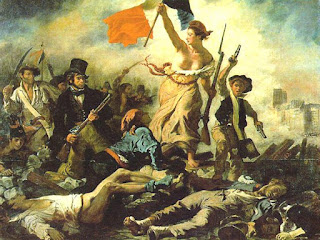5 out of 5 stars
On Amazon - available for pre-order. Publishes 27 May.
On Goodreads
How I discovered this book: Saw the author talking about it on X, requested an ARC.
In a Nutshell: 'a metaphorical tale of dark fantasy, a story of hope, courage and self acceptance.'
Chester was born into the circus, into the life of a clown, but his public persona of tragi-comedy is not one that sits well with him. What he really wants to do is change his entire life. See the world, concentrate on his main passion - his writing. As we join him in this unusual tale, circumstances have given him the impetus to begin his adventure.
This is such a beautiful book, in so many ways. I always read on Kindle, preferring it, but I wanted to hold this in my hands. The writing itself is so emotive and atmospheric, bringing the cities and theatres to life; it's the best I've seen from this author. Chester himself is a total darling, someone you badly want to find happiness.
Interspersed with the events of his own life are the stories he writes under his pen-name of Runo Quill. These are often metaphors for his own life, though one, The City of Silence, was more like a warning from fiction about the threats to free speech we experience in our own world. I love clever deviations from the main theme of a novel, especially when, like these, they give you the feeling of delving down intriguing side alleys before resuming your journey.
Death of a Clown will be released on May 27th - I highly recommend!














